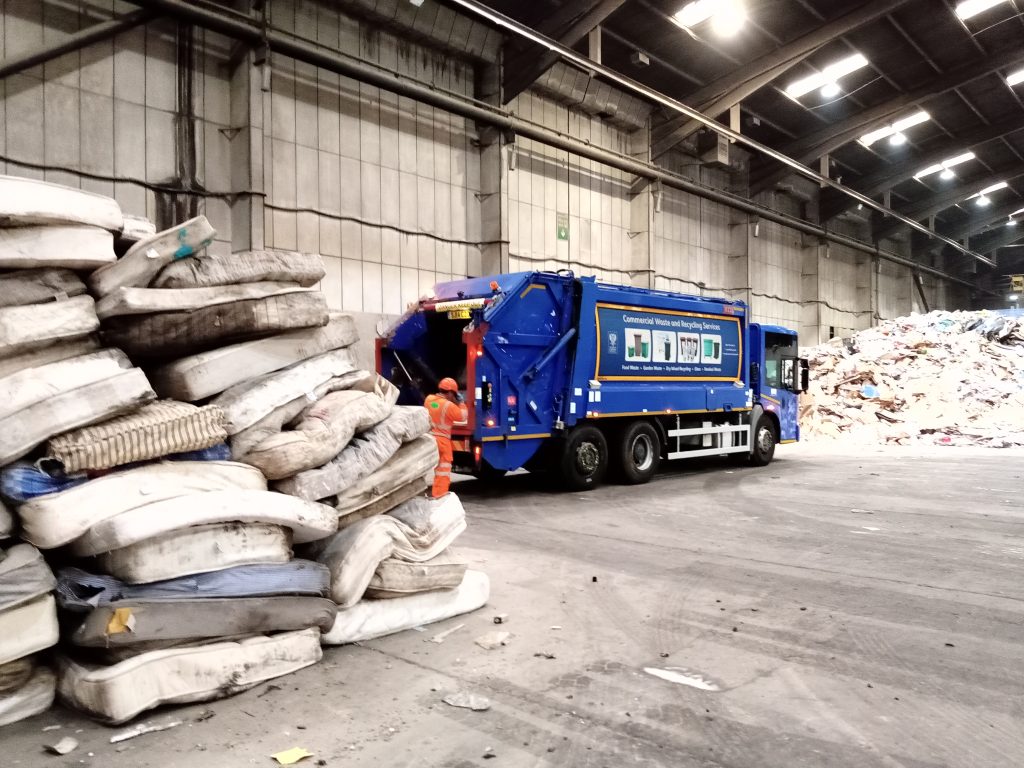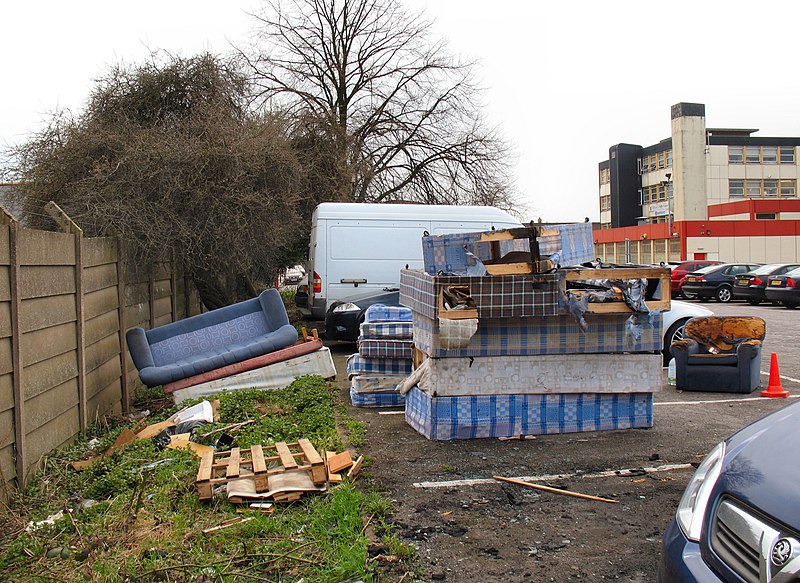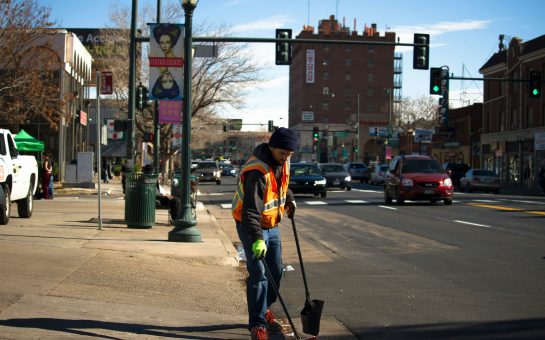The number of fly-tipping incidents per year in London has almost doubled in the last decade, according to government data.
Fly-tipping, the illegal dumping of waste on land with no license to accept it, has increased every financial year in London since 2017-18, with more than 420,000 incidents in 2022-23, compared to 230,000 in 2012-13.
However, the latest statistics from the Department for Environment, Food & Rural Affairs also show the number of fly-tipping incidents in the rest of England is trending downwards after peaking in 2020-21, and only increased by 37% in the last decade.
Keep Britain Tidy, the UK’s leading independent charity working to eradicate litter and fly-tipping, claims fly-tipping “is reaching epidemic proportions”, with London by far the biggest contributor.
Allison Ogden-Newton OBE, Chief Executive of Keep Britain Tidy, said: “It is time for the public and our justice system to say ‘enough is enough’ and tackle the selfish vandals who are trashing our environment for profit.
“Environmental crime is not a victimless crime – we are all victims of it.”
Why is fly-tipping so much worse in London?
Of the ten local authorities that reported the highest number of incidents in 2022-23, eight of them were in London, with Liverpool and Nottingham the only areas outside of the capital.
The top six local authorities were all London boroughs and Brent recorded the highest number of incidents in the nation for the second consecutive year with 34,830.
The number of incidents in Brent actually decreased by just over 1,000 compared to 2021-22, but the area remains a hotspot for fly-tipping.
Krupa Sheth, Cabinet Member for Environment, Infrastructure, and Climate Action for Brent Council, explained why the borough continues to struggle with fly-tipping.
Sheth said: “We have one of the largest populations in London, with high population density, both of which are factors to fly-tipping.
“We know that flagrant fly-tippers are in the small minority, and this should be a warning to them that they could get up to a £1,000 fine for dumping their waste where they please.”
However, Brent’s slight decrease in fly-tipping perhaps makes its figure less alarming than that of Tower Hamlets, which saw the most dramatic increase in the past year.
The number of fly-tipping cases in Tower Hamlets rose from 8,199 in 2021-22 to 15,861 in 2022-23, almost doubling in the space of a year.
A Tower Hamlets Council spokesperson said: “Fly-tipping and littering is an issue in any major city.
“There is even greater pressure in areas like Tower Hamlets as an inner-city area and the mostly densely populated borough in the country.”
In fact, in 2021, the Office for National Statistics found Tower Hamlets was the most densely populated area in the country with 15,764 people per square kilometre.
Richard Rose and Josh Mellor have been residents of Tower Hamlets for over a year, but their building has had construction work for as long as they have lived there.
Mellor explained that the work has placed additional strain on the local waste services, which were already struggling due to the dense population in the region.
Rose added: “I’m not super against fly-tipping, one man’s trash is another man’s treasure and all that.”
Rose’s final comment alludes to more harmless cases of fly-tipping, in which dumped items are sometimes re-claimed.
But Keep Britain Tidy explains that uncontrolled illegal waste can be hazardous to the public and the environment, especially if it contains toxic material or asbestos.
As such, fly-tipping can be even more damaging than at first glance.
What can be done to reduce fly-tipping?
With fly-tipping continuing to rise in London, greater efforts seem to be required in order to reduce the number of incidents.
Tower Hamlets Council has proposed an additional £5 million of further investment to fund 72 frontline workers and optimise waste services.
Meanwhile, the North London Waste Authority, the public body which manages north London’s recycling, partners with councils and residents to manage the 570,000 tonnes of waste produced by north Londoners alone each year.
Councillor Clyde Loakes, Chair of NLWA, said: “Dumping rubbish or fly tipping is highly antisocial and negatively impacts neighbourhoods.
“There is never an excuse for it – every council has bulky waste collections which can pick up items like old fridges.
“Plus, there’s our network of free reuse and recycling centres across north London where residents can take almost everything from out-of-date TVs and DIY waste to old mattresses and broken furniture.
“In 2022-23, we collected over 33,123 tonnes of material, of which 76% was reused, recycled, or composted.
“And since June 2021, we have collected and recycled more than 200,000 mattresses.”

Fly-tipping can also be reported to the relevant local authority here.
Feature image credit: Alan Stanton via Wikimedia Commons via CC BY-SA 2.0 licence


Join the discussion